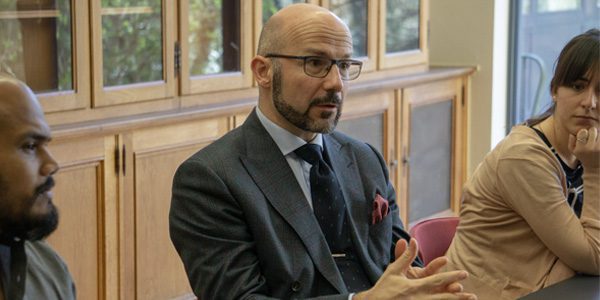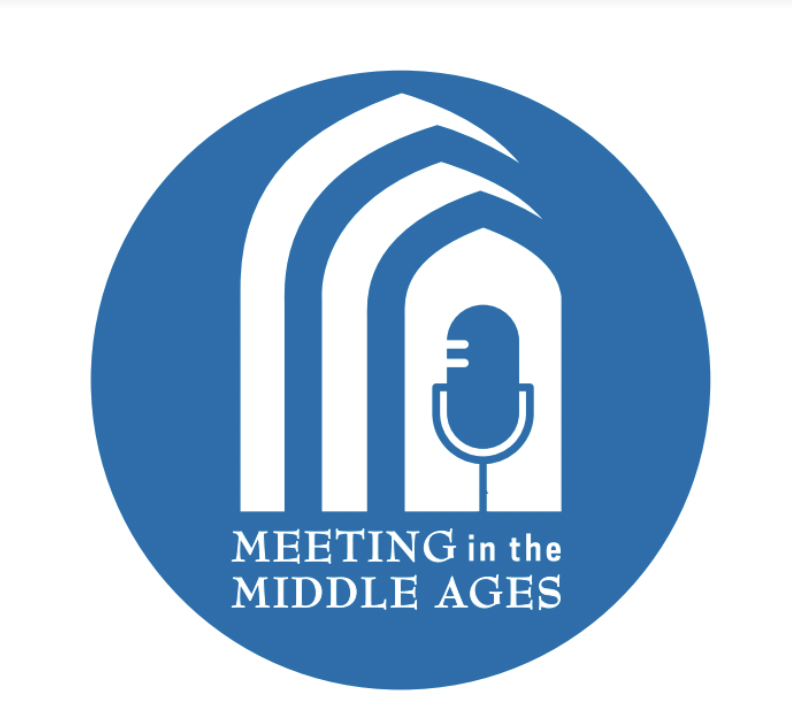In the latest episode of “Meeting in the Middle Ages,” Ben and Will sit down with Dr. Andrea Robiglio, professor of History of Philosophy at KU Leuven. We spoke about the wide world of pre-modern philosophy and the ways in which the field of philosophy is at heart a “vain struggle to define something.” We also discussed the works of Dante Alighieri and Thomas Aquinas, both of whom illustrate the surprising truth that the many of the conceptual practices we take to be modern have deep roots in medieval philosophy and theology.

During our conversation with Dr. Robiglio this month, the sheer range and interdisciplinarity of the professor’s work was staggering. “Interdisciplinary” is something of a buzzword in Medieval Studies at the moment, and it can sometimes result in superficial or imprecise research. But Dr. Robiglio does far more than merely gesture to neighboring fields in his work. He weaves together intensely close readings a la literary studies, in-depth historical analysis, and, of course, precise philosophical insights. We moved from recent historical fiction to early 20th century scholars, from Dante to Umberto Eco and back. His research is a trove of the riches that can be found when one takes a holistic view, pursuing different threads and weaving them together. It seemed natural to us, then, to title this episode “Leaving the Beaten Path.” He may have been more comfortable calling himself a “Pre-modern Philosopher,” but it was clear to us that his integration of Latin and vernacular(s) texts, from a whole host of authors and composers, into an analytical approach that is as ready to embrace the secular as the religious makes him a formidable medievalist.
A recurring theme in our conversation was that of modernity in philosophy. We tend to think of our postmodern world, with its proliferating multiplicities, as a response to the grand theories of modernism. It is a response, we tell ourselves, to modernism’s tendency towards teleology, structures, and hierarchy. But in so many ways, postmodernism is a medieval phenomenon. The Middle Ages, at least in Western Europe, grew among the ruins of the centralized, systematized Roman Empire. Medieval society tended towards localisation, a tangled web of nodes each representing conflicting groups and interests. For Robiglio, it seems that figures like Dante and Thomas Aquinas also resist hierarchy in their writing and draw on a wide range of sometimes conflicting sources. Aquinas was willing to push back against the hegemony of religious thinking and introduce secular philosophy into his work. Perhaps to the point that the distinctions between the two categories start to blur. It’s a remarkably postmodern kind of thinking. As people say, “there’s nothing new under the sun.”
Thanks for listening. See you next time in the Middle Ages.
Will Beattie & Ben Pykare
Medieval Institute
University of Notre Dame

